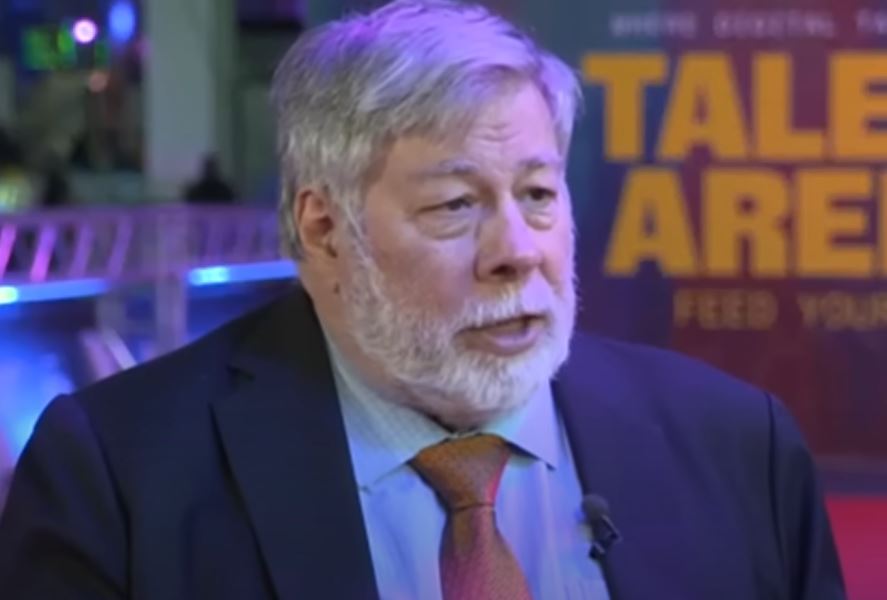Steve Wozniak’s current net worth is only about $10 million, which is incredibly small considering his initial investment in Apple, even though he helped build one of the most valuable companies in the world. However, this unexpected number is more indicative of his values than of any financial blunders. Actually, it’s a reflection of how market capitalization is frequently subordinated to personal integrity.
When Apple went public in 1980, Wozniak owned about 7.9% of the company’s shares. He had more than $140 million in paper wealth at the time. He would now be worth more than $230 billion if he had kept that same stake when Apple expanded to become a $3 trillion business. However, Wozniak generously donated a portion of his shares to other engineers who had been left out of Apple’s early financial rewards rather than holding onto his own, something Steve Jobs famously refused to do.
Steve Wozniak: Bio and Net Worth Profile
| Detail | Information |
|---|---|
| Full Name | Stephen Gary Wozniak |
| Also Known As | Woz, Rocky Clark, Berkeley Blue |
| Date of Birth | August 11, 1950 |
| Birthplace | San Jose, California, USA |
| Nationality | American, Polish, Serbian |
| Education | University of California, Berkeley (BSE in EECS) |
| Occupation | Engineer, Inventor, Entrepreneur |
| Known For | Co-founding Apple Inc. with Steve Jobs |
| Active Since | 1971 – present |
| Estimated Net Worth | $10 million (as of 2025) |
| Marital Status | Married to Janet Hill |
| Number of Children | 3 |
| Notable Ventures | Apple, CL 9, Wheels of Zeus, Woz U, Efforce, Privateer Space |
Because he purposefully gave away the majority of his wealth, Wozniak’s net worth has remained modest by Silicon Valley standards over the past forty years. He eventually gave millions to educational causes and gave colleagues large gifts of Apple stock, especially in the early 1980s. Interestingly, he never became prone to hoarding or speculation. In reference to stock investing, he famously remarked, “I don’t do that stuff.” That one sentence sums up a man who values ethics and education more than material wealth.
Speaking engagements, low-key appearances, and a symbolic $120,000 yearly stipend from Apple for continuing to be an official employee have all helped Wozniak maintain his lifestyle in recent years. He’s just refocused, not retired. He has redefined success for contemporary engineers by focusing on tech accessibility, space sustainability, and public education.
He has continuously shown how technical talent can be used for significant, human-centered impact through projects like Woz U, a tech education platform, and Wheels of Zeus, a GPS solutions company. His more recent initiatives, like Privateer Space, which addresses orbital debris, and Efforce, a blockchain platform for ecological funding, demonstrate his unwavering dedication to applying innovation for the benefit of the planet.
Wozniak’s impact on society has remained remarkably powerful despite his meager financial gains. He has inspired a generation to value creativity over profit and helped demystify engineering for countless students by using his notoriety for educational outreach and accessible tech design. He has changed from being a tech founder to a cultural mentor as a result.
The difference between Jobs and Wozniak is especially noticeable. While Woz subtly demonstrated selflessness, technical mastery, and emotional intelligence, Jobs came to be associated with visionary leadership and daring design. Although they worked together to create Apple, Wozniak’s humility won him lasting respect in the tech industry.
He famously went back to Berkeley to complete his degree while posing as “Rocky Clark.” His character is best summed up by that act, which is endearing and incredibly human. Wozniak seeks education, equality, and ethical responsibility, while many in the tech industry focus on valuations. He is rich not only in money but also in influence.
As a founder who prioritizes the foundations of engineering over the twigs of Wall Street, Wozniak continues to be an anomaly in Silicon Valley history. He had the option to financially align himself with Jeff Bezos or Elon Musk, but he took a completely different approach. He created a legacy independent of stock price through extraordinarily effective generosity and a very clear vision of service.
In the current tech environment, his choice to forgo extreme wealth has turned out to be a potent symbol. In a time when headlines are dominated by data scandals, layoffs, and automation anxiety, Wozniak’s continued presence as a philanthropic engineer provides a welcome counterpoint. He shows that it’s not necessary to fully own something in order to be a part of something transformative.
Despite officially leaving Apple’s operations decades ago, Wozniak continues to represent the company at events, demonstrating a level of loyalty that is extremely uncommon. He is frequently referred to as “The Woz,” but his true worth comes from how remarkably similar his work and personal ethics have remained over the course of turbulent decades of technological advancement.
Wozniak’s voice has grown in importance as artificial intelligence (AI) continues to transform our digital lives and engineers acquire previously unheard-of control over global systems. He talks about being careful, working together, and having empathy. He warned that unbridled innovation could surpass our ethical readiness in 2023 and signed an open letter calling for a temporary halt to advanced AI training. His observations become more and more pertinent when combined with that kind of foresight and a noticeably better comprehension of social dynamics.
He is always passionate, occasionally emotional, and frequently honest in personal interviews. Wozniak is more than just a historical figure; he is a living example of how people should always benefit from technology, not the other way around. His story offers an especially creative road map for nascent business owners: create for users, share with colleagues, and never sacrifice your happiness in the process.




